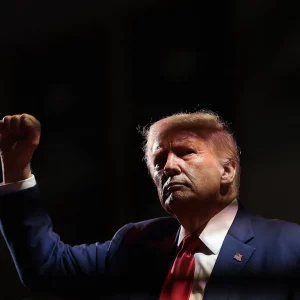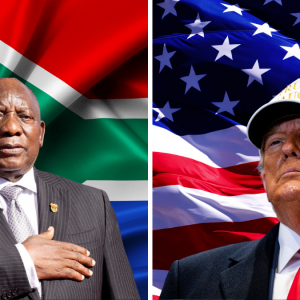The Battle between the Turks and Kurds has been raging for years, but it seems the relationship between the two has reached an all-time low as a result of the unprecedented rise of the Islamic State (IS). Many are beginning to question Turkey’s devotion to the fight against ISIS. Turkey recently agreed to join the United States’ effort to battle ISIS, but the Kurds are adamant that Turkish President Erdogan has a hidden agenda up his sleeves. While the international community may be perturbed by Turkey’s lack of effort to assist the Kurds in the battle against ISIS, the Kurds themselves would argue that there are covert, underlying motives for the Turks’ behavior. The Kurdish people believe that the Turks are more focused on crushing the Kurdish minority than taking down ISIS. As a member of NATO, Turkey has a geopolitical obligation to keep ISIS from fulfilling its goals and should have an interest in the stability of its neighbors. Unfortunately, Turkey’s actions indicate that it is using its complicated relationship with the Kurdish Worker’s Party (PKK) as an excuse to sit on the sidelines. Tensions between the Turks and the Kurds are thus only being aggravated by the threat of the Islamic State.
The complex issue at hand would be better understood with a break down of the key players involved and their historical relationship. The Kurds are a non-Arabic minority with communities scattered across Turkey; they have encountered extremely unsympathetic attitudes from the Turkish Government and are still struggling to retain their identity. Tensions have been running high between the Turks and Kurds since the end of World War I prompted the creation of the Treaty of Sevres. Rather than establishing a separate Kurdistan, the Treaty declared that these displaced people would be relocated to parts of Turkey and Iran. As such, the identity of the Kurdish people came under threat, and thus the nationalist Kurdish Worker’s Party (PKK) was formed in 1978. This organization continues to advocate for the independence of the Kurds to this day. Unfortunately, the efforts of the PKK are far from peaceful and have resulted in their being labeled a terrorist group not only by Turkey, but also by the United States and the European Union.
ISIS’s actions in the Middle East have generated debate about whether the rise of the IS will force the Kurds and the Turks to unite against a common enemy or further drive a wedge between the two parties. However, recent events seem to suggest that the ISIS threat is only causing tensions to escalate between the two groups.

In October 2014, the Turkish parliament in Ankara authorized the government to deploy military troops into Syria and Iraq so that Turkey’s NATO Allies may utilize Turkish military bases. The US was relieved by Turkey’s decision to join the fight, as Turkey has the second largest army of all the NATO Members. One might believe that this sequence of events would prompt the Turks and the Kurds to develop a united front and take on ISIS together. However, things have not been running smoothly. Relations have been far from diplomatic, let alone amicable.
The lack of Turkish intervention in the Islamic States’ brutal takeover of the Syrian town of Kobani left Kurds harboring strong feelings of betrayal. Kobani emerged as a crucial (and bloody) battleground in the fight against ISIS. According to Al Jazeera, escalating violence prompted the Syrian Government to order evacuation of the town, with approximately 186,000 people fleeing to bordering Turkey. While Turkish military tanks were positioned along the border, they refused to intercede despite Turkish Prime Minister Ahmet Davutoglu’s claims that they would do “whatever [they] can” to aid Kobani. The Turks not only refused to take action themselves, they also resorted to the use of tear gas and water cannons in order to thwart any attempts of those on the Turkish side to do so. Local Kurds criticized the Turkish troops, claiming “they are just there to watch’”.
There are various arguments one needs to consider when looking at the current situation. The downfall of Kobani would also trigger the downfall of the YPG, the Syrian counterpart to the PKK. Turkey’s history would indicate that it has always been dedicated to defeating the PKK. The country is worried that cracking down on ISIS would also prompt the formation of a stronger, united PKK. The PKK are trained fighters and would be valuable allies against ISIS, but Turkey does not wish to give them the opportunity to grow any stronger. The stronger the PKK, the closer the Kurds are to founding a separate Kurdistan.
Despite Turkey’s reluctance to embrace the Kurds, it is imperative that it either mends its ways or prepares to face dire consequences. The imprisoned leader of the KPP, Ocalan, recently stated that if Turkey permitted ISIS to carry out its violent plans in Kobani, he would contract any negotiations that were initiated with Ankara.
Moreover, the people of Turkey hold strong views about the atrocities that ISIS is committing and have expressed growing support for taking action. This is a sensitive time for all of the people of Turkey – Kurdish or ethnic Turks – and maybe the crucial push needed to put aside any differences and work toward the greater good. The voices of the people have significant impact on the Turkish government, as the nation has already begin to prevent foreign fighters from crossing into Syria and has prohibited the smuggling of ISIS oil into its borders.
ISIS has caused the already fragile relationship between the Turks and Kurds to further deteriorate. The Turkish government needs to realize that it is not just the Kurds’ pride that is at stake: the Islamic State is not only Syria’s problem. It poses a substantial threat to the rest of the world.





Be First to Comment